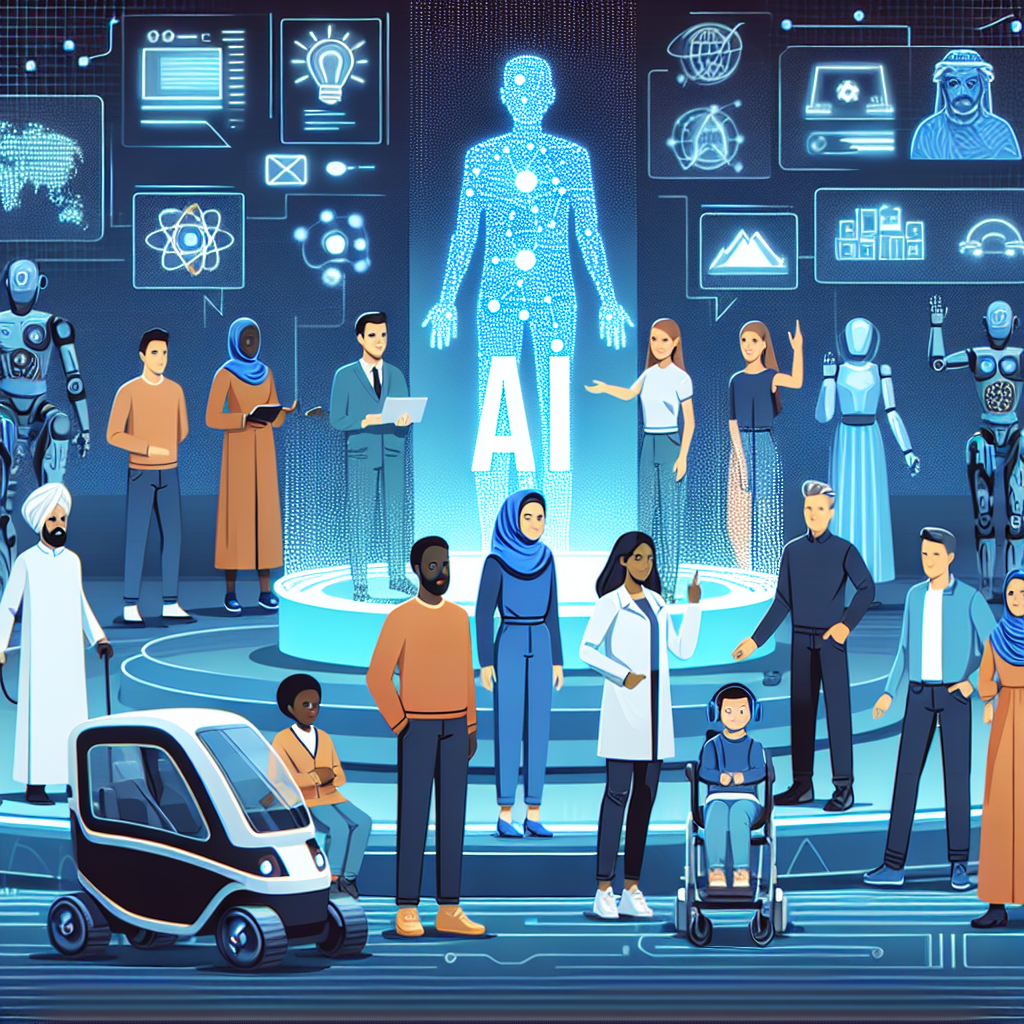The Future of AI: Democratizing Technology for All
Artificial Intelligence (AI) has been a hot topic in recent years, with rapid advancements in technology driving its adoption across various industries. From self-driving cars to virtual assistants, AI has the potential to transform the way we live and work. However, as with any new technology, there are concerns about its impact on society and the economy. One of the key challenges facing AI is ensuring that it benefits everyone, not just a select few. In this article, we will explore the future of AI and how it can be democratized to benefit all of society.
What is AI?
AI refers to the simulation of human intelligence in machines that are programmed to think and act like humans. This includes tasks such as learning, problem-solving, and decision-making. AI systems can analyze large amounts of data, recognize patterns, and make predictions based on that data. Some common examples of AI applications include virtual assistants like Siri and Alexa, recommendation systems like those used by Netflix and Amazon, and self-driving cars.
The Future of AI
The future of AI is promising, with the potential to revolutionize industries such as healthcare, finance, and transportation. For example, in healthcare, AI can be used to analyze medical images, predict disease outbreaks, and personalize treatment plans. In finance, AI can help detect fraud, automate trading, and provide personalized financial advice. In transportation, AI can improve traffic flow, reduce accidents, and enable autonomous vehicles.
However, there are several challenges that need to be addressed in order for AI to reach its full potential. One of the biggest challenges is ensuring that AI is accessible to everyone, not just a select few. Currently, the development and deployment of AI systems are dominated by a few large tech companies, which can limit the benefits of AI to a small segment of society. In order to democratize AI, we need to ensure that it is accessible, affordable, and ethical.
How can AI be democratized?
There are several ways in which AI can be democratized to benefit all of society. One approach is to promote diversity and inclusion in the development of AI systems. This includes ensuring that AI teams are diverse and represent a wide range of perspectives and backgrounds. By including a diverse group of stakeholders in the development process, we can ensure that AI systems are designed to benefit everyone, not just a select few.
Another way to democratize AI is to invest in education and training programs that teach people how to use and develop AI technologies. This includes programs that teach coding, data science, and AI ethics. By providing people with the skills and knowledge they need to work with AI, we can empower them to take advantage of the benefits of AI and contribute to its development.
Additionally, we need to ensure that AI systems are designed with ethics and fairness in mind. This includes ensuring that AI systems are transparent, accountable, and free from bias. By designing AI systems that are ethical and fair, we can ensure that they benefit everyone and do not harm marginalized communities.
FAQs
Q: What are some examples of AI applications that are democratizing technology?
A: Some examples of AI applications that are democratizing technology include healthcare chatbots that provide medical advice to underserved communities, AI-powered financial tools that help people manage their money, and AI-driven educational platforms that provide personalized learning experiences to students.
Q: How can AI be used to address social and economic inequality?
A: AI can be used to address social and economic inequality by providing access to resources and opportunities for marginalized communities. For example, AI-powered job matching platforms can help connect job seekers with employers, AI-driven healthcare systems can provide personalized care to patients, and AI-driven financial tools can help people manage their finances.
Q: What are some ethical considerations when developing AI systems?
A: Some ethical considerations when developing AI systems include ensuring transparency and accountability, protecting privacy and data security, and avoiding bias and discrimination. It is important to design AI systems that are ethical, fair, and beneficial to society as a whole.
In conclusion, the future of AI is promising, with the potential to revolutionize industries and improve the lives of people around the world. In order to ensure that AI benefits everyone, not just a select few, we need to democratize AI by promoting diversity and inclusion, investing in education and training programs, and designing ethical and fair AI systems. By working together to democratize AI, we can create a more equitable and inclusive future for all.

